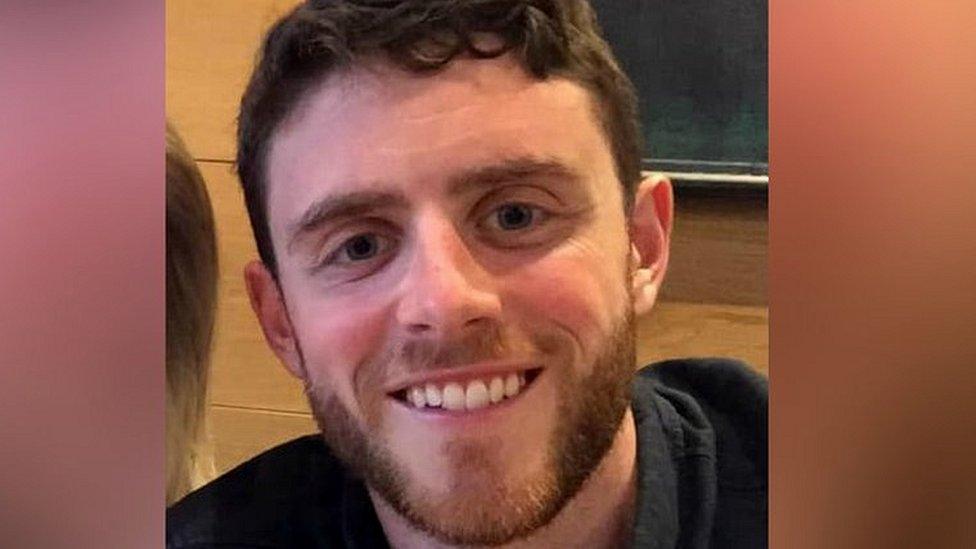Police officer on frontline life: 'I've been spat on, bitten and kicked'
- Published
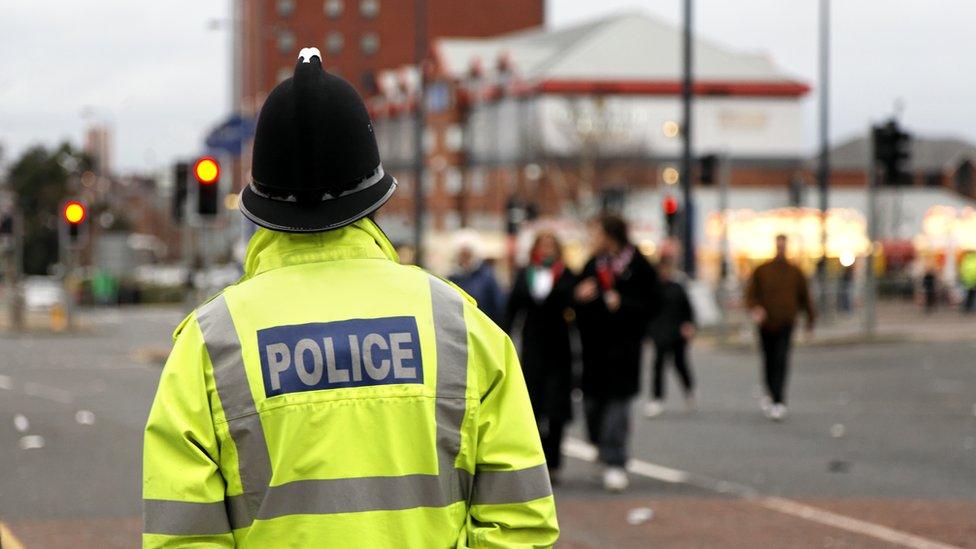
PC Andrew Harper was killed while attending a burglary on Thursday - the third serious attack against an officer on the job in recent weeks.
Earlier this month, a Met police constable was stabbed in the head just days before a West Midlands Police officer was run over with his own vehicle.
But are police officers facing more violence? The BBC's Ella Wills spoke to one serving officer, who asked not to be named, about life on the frontline.
These are his own words.

'Violence is rife'
I've been spat on, I've been bitten, I've been punched and kicked. I know officers who have been stabbed. Any one of us could be attacked on any one day.
I have 15 years' experience as an officer including armed response and the Roads Policing Unit. In that time I've noticed an increasing propensity for violence against police by criminals.
It's absolutely rife in the UK and it can make cops scared to do their job.
The last 10 years have been a nightmare. We have lost around 22,000 staff and criminals know that we are spread more thinly, with officers often out alone and back up further away.
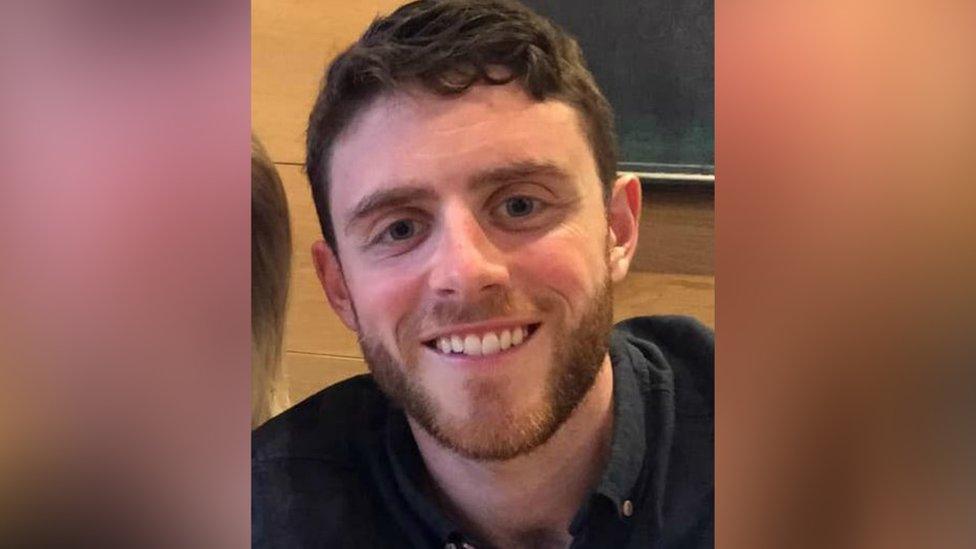
PC Andrew Harper was killed on duty on Thursday
I've been in some nasty fights with suspects. A few years ago I was out with my colleague when he was strangled.
We were called to a maze-like inner city area at 02:00, following reports of a bloke banging outside a window. When we arrived he was throwing stuff around and it quickly descended into a battle.
My mate tried to take hold of him but the suspect just threw him straight off.
We ended up in a heap on the floor with my friend on the bottom. The suspect got his hand round his throat and was squeezing.
I pressed the emergency button on my radio for urgent assistance. However, it was a few minutes before other officers managed to find us and we arrested the suspect.
We still talk about it now when we go for coffee. He suffered bruising on his neck, but it had more of a mental impact on him.
Other colleagues who have been badly attacked have either had to step back from a front-facing role, or leave work entirely.
You can forget how vulnerable you are in the job. I don't want to lose anybody at work, and I want to go home to my family.
Situations like that leave you thinking it could be you.
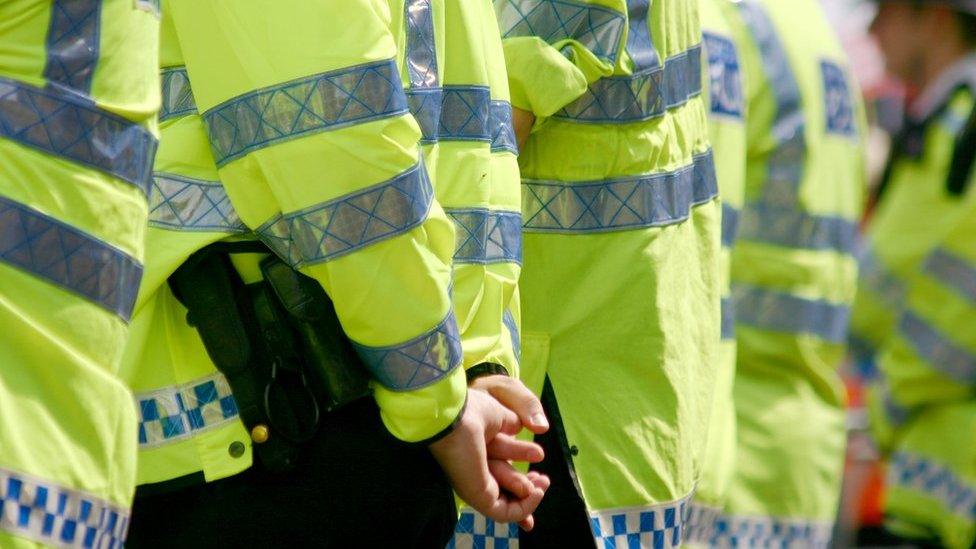
In the Roads Policing Unit, I will patrol by myself and often chase highly dangerous individuals. I have to wait for back up if I come across an incident.
I aim to dominate suspects from the outset, either verbally or physically.
They have to know that I am in control because they will be willing to take a chance against me if they sniff out weakness.
Do I feel scared sometimes? Of course I do, but I use bravado and subterfuge while waiting for my colleagues to arrive as back up. If the suspect resists they will be dealt with robustly.
I sometimes let them think they are going to be let go and say it's just a routine check, to pass time until my mates have arrived.
I don't want to get into a fight, but if it has to go that way I'm prepared to do so.
'Risk averse' officers
I've noticed a huge increase in weapon carrying since I joined. People used to attack us, but they would use their fists.
Now we are confiscating machetes, baseball bats, crowbars, knives and firearms.
The increased violence can make officers risk averse. You are left with those that are prepared to get stuck in and those who stand aside and let the suspect go.
If we don't get stuck in, we are not doing what we get paid to do.
More police officers would help because forces would be able to send officers out in pairs. There would also be greater resources to investigate crime thoroughly.
It's not possible to offer the same service on the frontline after losing so many officers.
When it takes us up to four days to respond to a house burglary, it's clear that we do not have the staff to do our job.
- Published16 August 2019
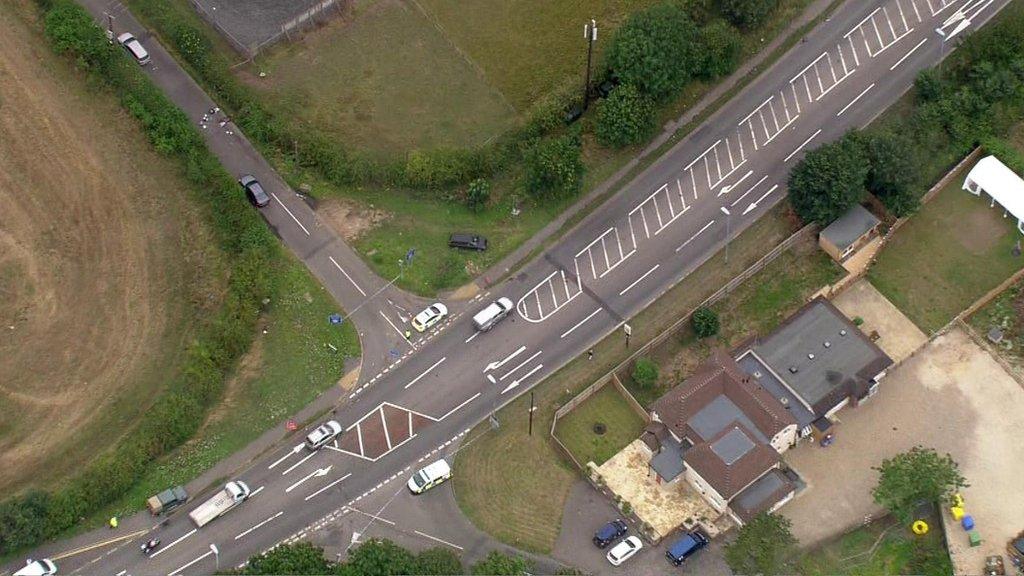
- Published16 August 2019
